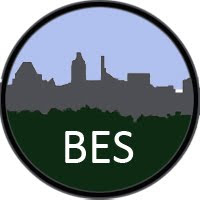Baltimore Floods
Overview
Baltimore Floods, an outcome of the CompHydro Baltimore project, is a 6-lesson high school curriculum that teaches students about the causes and consequences of flooding in urban areas. The curriculum addresses one of the most daunting challenges to developing scientific literacy in students: integrating teaching and learning of key ideas and practices of place-based environmental science with computational and quantitative science in authentic, innovative and effective ways. Baltimore Floods features classroom and schoolyard learning experiences that reflect the practices of real world science – including both field studies and computational modeling of Earth systems. Funded by the National Science Foundation, CompHydro Baltimore is part of a partnership between scientists, science educators and school systems at four locations across the U.S. – Baltimore (Maryland), Colorado, Arizona and Montana. For more information about the national CompHydro project, visit the CompHydro home page. Click through the tabs to access the Baltimore Floods curriculum.
Learn more about the Baltimore Floods curriculum
Baltimore Floods Curriculum Learning Goals and NGSS Connections
The Urban Tree Education Project (UTEP) brought together ecologists, educators and landscape designers to create classroom learning opportunities around ecological design. In addition to protocols and lessons about trees, soils and water, this program developed a Design Activities Workbook integrating ecological issues and solutions with landscape design principles. Download UTEP materials here.
The Pathways to Environmental Science Literacy Project has developed a series of Modules for Middle and High school students to promote place-based learning and environmental literacy. These Modules seek to increase student understanding of global water and carbon cycling, as well as biodiversity. In addition, a citizenship module guides students through practice using scientific evidence to support scientific claims about environmental issues. All modules are free and available to the public. To view teaching materials, click on a topic below. Note: this will open a new tab outside of the BES Education website.
Materials developed for our Urban Ecosystem Teacher Institute span the range from short field protocols to long-term ecological investigations, and are appropriate for middle and high school classrooms. Download protocols and lessons here..
My City’s an Ecosystem was developed by BES educators and scientists to support the Parks & People’s Foundation Elementary school KidsGrow program. This series of modules allows teachers and their students to explore and learn about their schoolyard ecosystem. Investigation and exploration are central to the curriculum as is the development of scientific habits of mind including curiosity, open-mindedness, reflection and patience. Download modules here.


